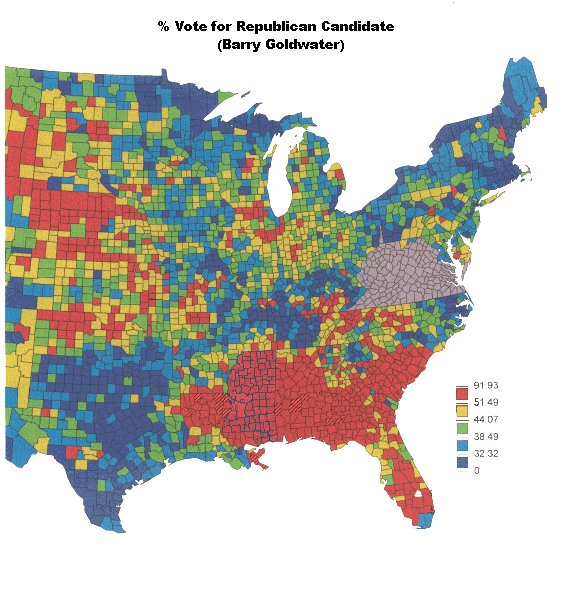|
The
Civil Rights Act of 1964 forced the South to desegregate its public accommodations
(public transport, restaurants, etc.) and forbad racial discrimination in
employment. When President Johnson signed the Act into law, he lamented
that his action would end the dominance of the Democratic Party in the South.
The first indication that he was right came in the Presidential election
of 1964. Although the Civil Rights Act could not have been passed without
the support of moderate Republicans, overcoming the steadfast opposition
of Southern Democrats, the 1964 Republican presidential nominee, Sen. Barry
Goldwater, opposed the Act. No racist himself, Goldwater nevertheless believed
that the Act exceeded the Constitutional powers of Congress. His message
made him popular in the Deep South, where he won the only states outside
his home state of Arizona. (Va. and W. Va., missing data here, went for
Johnson.) Althought the election was a disaster for the Republicans, Goldwater's
sweep of the Deep South was the first indication that the Republican party
could successfully bid for a majority in the South. |
|
